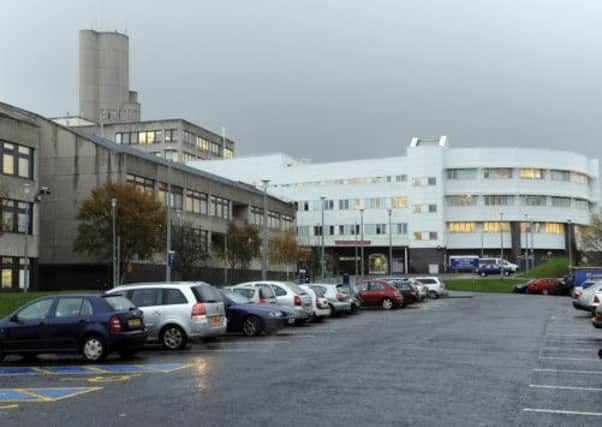Caesarean infection rate investigation ordered


A report published by Health Protection Scotland (HPS) found an overall drop in rate of so-called surgical site infections (SSIs) for different operations since 2008.
But in 2012 the report said that three boards - Tayside, Highland and Ayrshire and Arran - had to be alerted to higher than expected rates of infections in women following a caesarean.
Advertisement
Hide AdAdvertisement
Hide AdThe average rate of SSIs in caesarean patients across Scotland stood at 2 per cent last year, down from 2.2 per cent the previous year.
But three boards fell outside expected levels based on the number of patients they treated, with Highland seeing a rate of 4.6 per cent, Ayrshire and Arran with 3.7 per cent and Tayside with 3.4 per cent.
Action plans
Professor Jacqui Reilly, a consultant at HPS, said: “For all of these boards that have reported higher than expected rates they were aware of that and produced action plans to investigate the variation locally.
“They put the appropriate steps in place that we would expect them to.
“In the intervening period their infection rates are now within the expected level.”
Dr Gabby Phillips, from NHS Tayside, said:“NHS Tayside has an active approach to detecting these infections which means we can pick them up early as possible.
“We keep a close eye on any increases and act quickly to make sure everything is in place that should be.”
Downward trend
Dr Adam Brown, consultant microbiologist for NHS Highland, said: “Through local surveillance in 2012 our maternity and infection prevention and control teams identified a number of caesarean section wound infections.
Advertisement
Hide AdAdvertisement
Hide Ad“The numbers were relatively small but action was immediately taken to reduce infection rates.”
Professor Fiona McQueen, from NHS Ayrshire and Arran, said minimising the risk of surgical site infection following a caesarean was a priority.
Health Secretary Alex Neil welcomed the reductions seen in infections in different types of surgery.
“I am determined to continue this downward trend and we continue to work with health boards and HPS to improve the quality of patient care and make surgery as safe as possible,” he said.